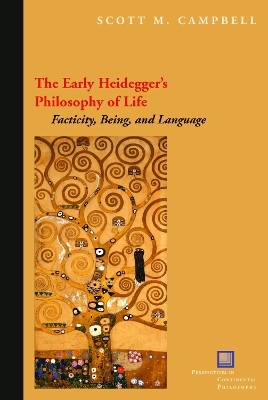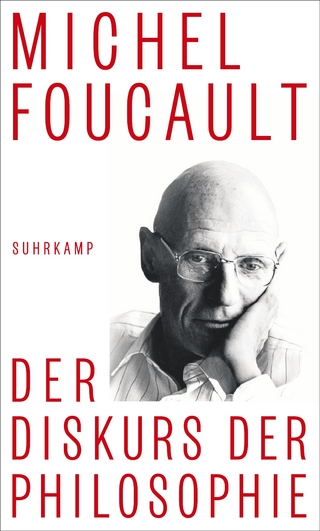
The Early Heidegger's Philosophy of Life
Facticity, Being, and Language
Seiten
2012
Fordham University Press (Verlag)
978-0-8232-4220-7 (ISBN)
Fordham University Press (Verlag)
978-0-8232-4220-7 (ISBN)
The topic of this book is the facticity of life and language in the early work of Martin Heidegger, looking at the early lecture courses (1919 to1925). Its aim is to show that Heidegger presents a meaningful view of human life as both riddled with deception and open to insight.
In his early lecture courses, Martin Heidegger exhibited an abiding interest in human life. He believed that human life has philosophical import while it is actually being lived; language has philosophical import while it is being spoken. In this book, Scott Campbell traces the development of Heidegger’s ideas about factical life through his interest in Greek thought and its concern with Being. He contends that Heidegger’s existential concerns about human life and his ontological concerns about the meaning of Being crystallize in the notion of Dasein as the Being of factical human life.
Emphasizing the positive aspects of everydayness, Campbell explores the contexts of meaning embedded within life; the intensity of average, everyday life; the temporal immediacy of life in early Christianity; the hermeneutic pursuit of life’s self-alienation; factical spatiality; the temporalizing of history within life; the richness of the world; and the facticity of speaking in Plato and Aristotle. He shows how Heidegger presents a way of grasping human life as riddled with deception but also charged with meaning and open to revelation and insight.
In his early lecture courses, Martin Heidegger exhibited an abiding interest in human life. He believed that human life has philosophical import while it is actually being lived; language has philosophical import while it is being spoken. In this book, Scott Campbell traces the development of Heidegger’s ideas about factical life through his interest in Greek thought and its concern with Being. He contends that Heidegger’s existential concerns about human life and his ontological concerns about the meaning of Being crystallize in the notion of Dasein as the Being of factical human life.
Emphasizing the positive aspects of everydayness, Campbell explores the contexts of meaning embedded within life; the intensity of average, everyday life; the temporal immediacy of life in early Christianity; the hermeneutic pursuit of life’s self-alienation; factical spatiality; the temporalizing of history within life; the richness of the world; and the facticity of speaking in Plato and Aristotle. He shows how Heidegger presents a way of grasping human life as riddled with deception but also charged with meaning and open to revelation and insight.
Scott M. Campbell is Associate Professor of Philosophy at Nazareth College of Rochester.
| Erscheint lt. Verlag | 1.10.2012 |
|---|---|
| Reihe/Serie | Perspectives in Continental Philosophy |
| Verlagsort | New York |
| Sprache | englisch |
| Maße | 152 x 229 mm |
| Themenwelt | Geisteswissenschaften ► Philosophie ► Philosophie der Neuzeit |
| Geisteswissenschaften ► Philosophie ► Sprachphilosophie | |
| Geisteswissenschaften ► Religion / Theologie | |
| ISBN-10 | 0-8232-4220-X / 082324220X |
| ISBN-13 | 978-0-8232-4220-7 / 9780823242207 |
| Zustand | Neuware |
| Haben Sie eine Frage zum Produkt? |
Mehr entdecken
aus dem Bereich
aus dem Bereich


